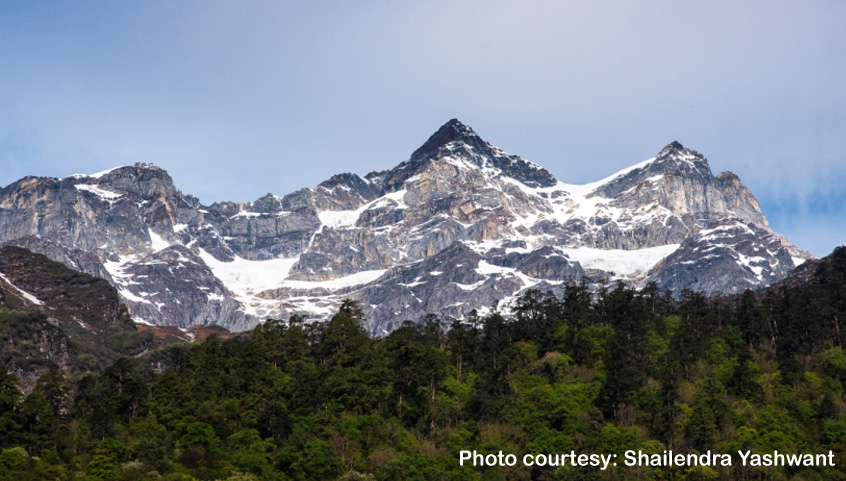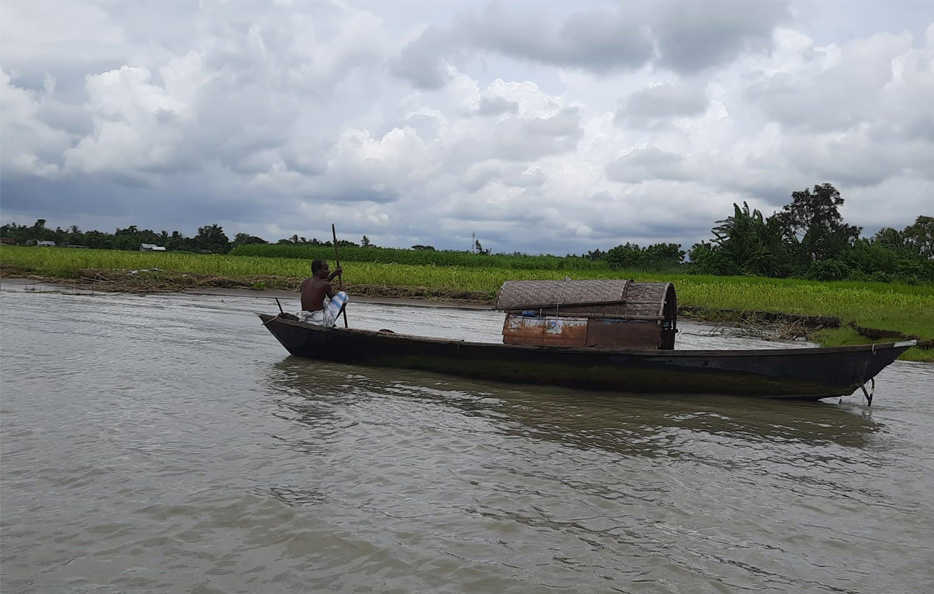CAN South Asia Quarterly Newsletter for January – March 2024

Dear Friends,
2023 was the hottest year on the planet, and 2024 threatens to be even warmer. Now more than ever, climate action on all key fronts – mitigation, adaptation, and disaster risk reduction – needs to be accelerated.
Our collective advocacy efforts and direct interventions on the ground have certainly helped but clearly they are not nearly enough. It is amply clear that Climate Finance is key to unlocking further climate action, pay for loss and damage and resilience building of an increasingly vulnerable world.
CANSA will be joining the global campaign for ambitious climate finance targets for the New Collective Quantified Goal (NCQG) ahead of COP29 and will soon reach out to you for your participation and support.
Meanwhile, we are pleased to share the first quarter newsletter of 2024, a compilation of key activities conducted by CANSA and its members in the region to further our mission to build a climate-resilient South Asia.
Do write to us with your feedback and comments.
Happy Reading

Ruchi Chaudhary
Program Manager, CANSA
CANSA and Partners
participate in the World Social Forum, Kathmandu, Nepal

The World Social Forum (WSF), an annual meeting of civil society organizations, was held in Kathmandu in Nepal in 2024 (15-19 February) with the theme “Another World Now”, in continuity with the WSF vision of “Another World is Possible”.
The proliferation and dominance of neo-liberal capitalism have led to extreme inequality, displacement, warfare, climate-related catastrophes, loss of livelihoods, diminished opportunities, and widespread poverty. To combat these, numerous resistance movements have been emerging worldwide, and people are demanding a more equitable and sustainable world in which to reside.
WSF’s opening ceremony on 15 February, with thematic panels in the morning, and assemblies and parallel activity sessions organized for the latter parts of the day from 16 to 18 February, with a concluding session on 19 February. focused on convergence, alliance building, and interactions.
CANSA and its partners Clean Energy Nepal (CEN), Oxfam in Nepal, Dalit Welfare Organization (DWO), The Development Fund, and Tearfund organized 3 seminars/discussions, detailed below:
WSF Side Event: Ensuring equity, social and gender justice through Integrated Climate Action in the Urban Sphere | 18 February 2024, morning session
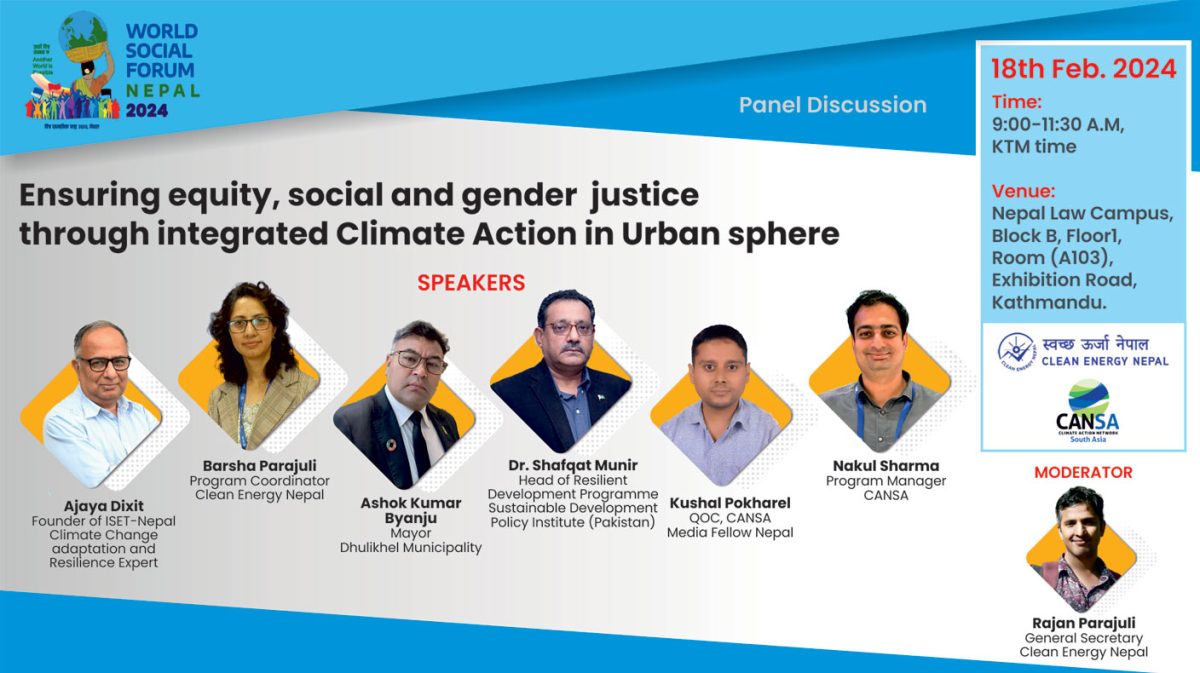
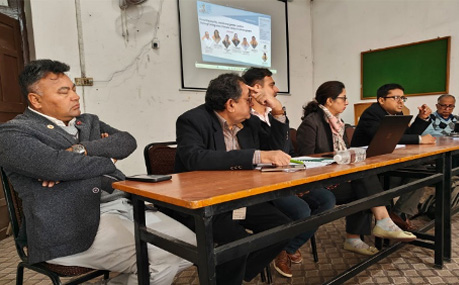
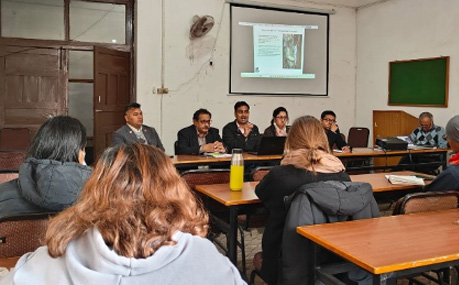
WSF Side Event: Enhancing Equity on Climate Finance: The Key to Tackle Climate Crisis and Inequality | 18 February 2024, afternoon session

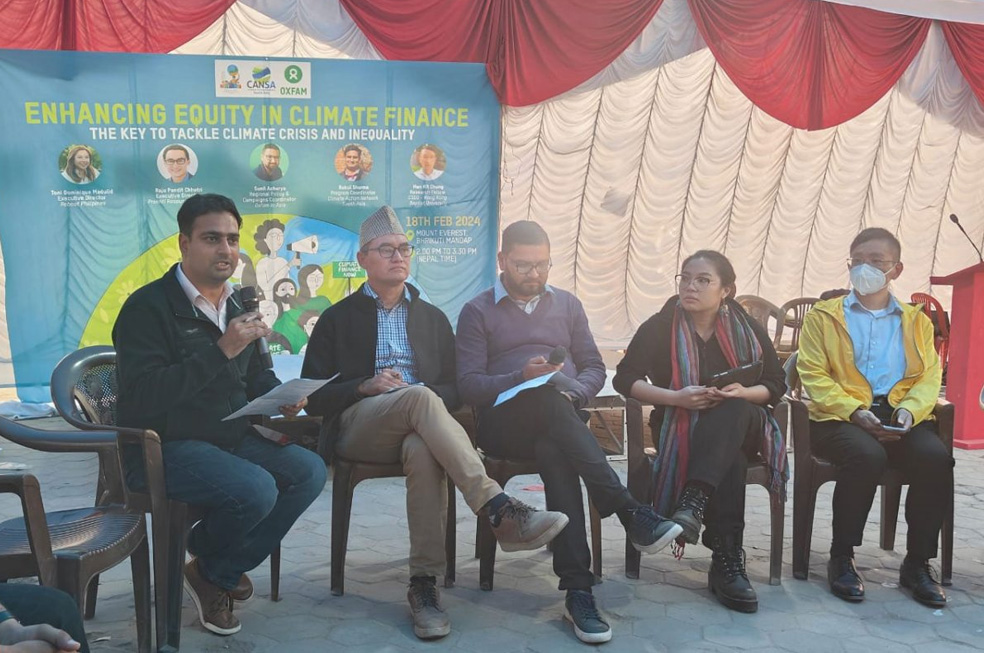
WSF Side Event: Climate Change/DRR and it’s impact on Dalit and Marginalized Communities | 18 February 2024, afternoon session
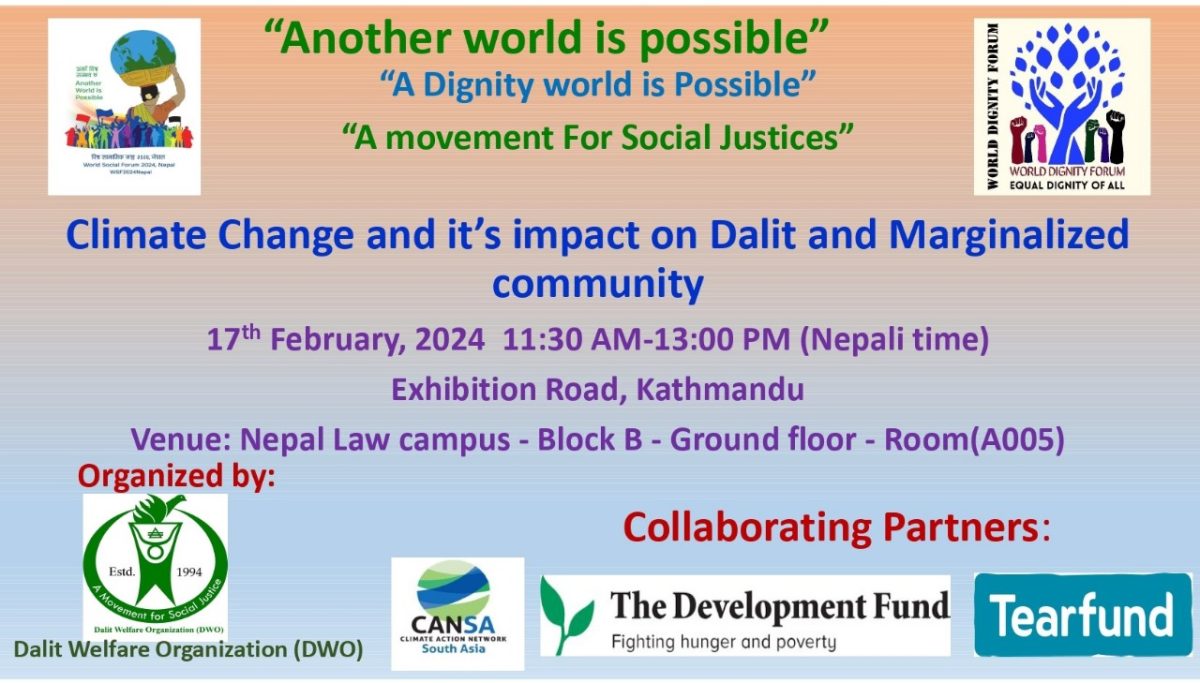
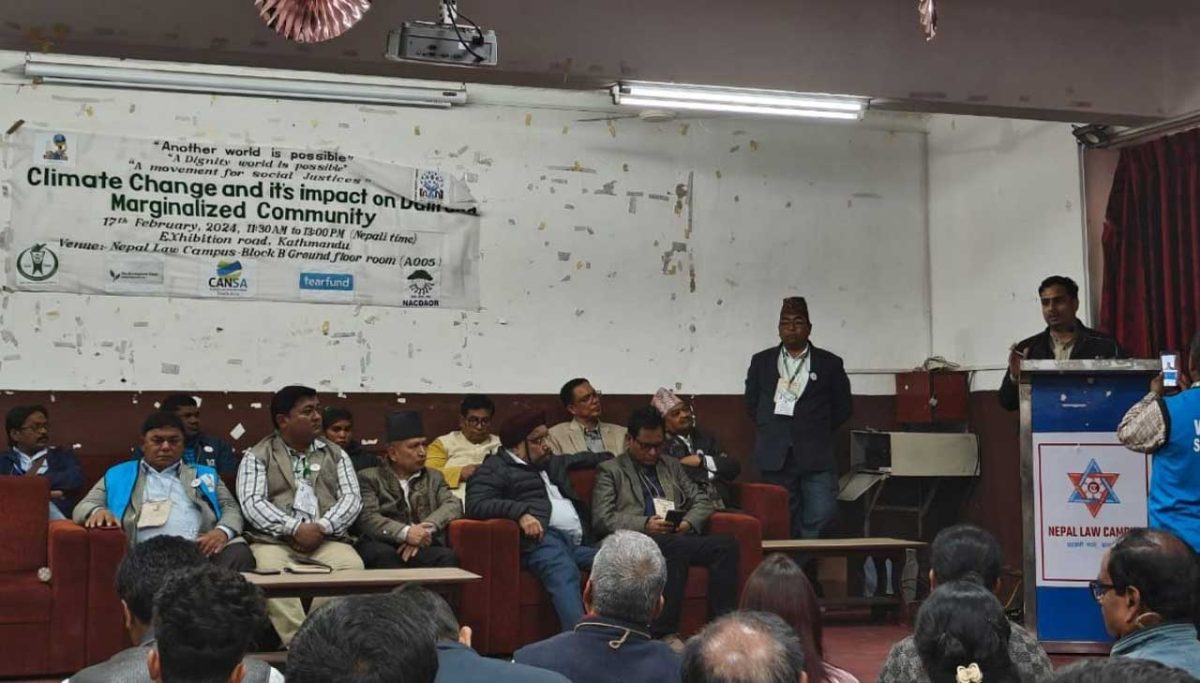
OTHER KEY EVENTS
STUDY SHARING SEMINAR: Climate Resilient Urban Development in Bangladesh: Policy Gaps and Recommendations | 19-20 February 2024


As part of the 7th UIU International Conference on Sustainable Development towards a Resilient Future, the Center for Participatory Research & Development (CPRD) and Climate Action Network South (CANSA) organized a study-sharing seminar and panel discussion, titled ‘Climate Resilient Urban Development in Bangladesh: Policy Gaps and Recommendations,” in a parallel session at the 7th UIU International Conference on Sustainable Development hosted by the United International University in Dhaka, Bangladesh. The session was moderated by Md Shamsuddoha, Chief Executive, CPRD.
The study was intended to identify the status quo of climate-resilient urban development in Bangladesh through three thematic lenses- Mitigation, Adaptation, Inclusiveness. Based on a comprehensive analysis of Bangladesh’s climate and urban specific plans and policies, the study identified scope, gaps and challenges of climate resilient urban development and placed a set of recommendations for future policy consideration.
Access details here.
‘Female Climate Heroes: Women Leadership in Locally Led Climate Actions’ | 6 March 2024
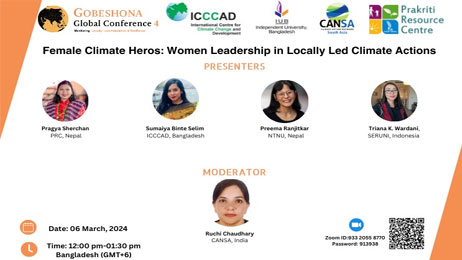
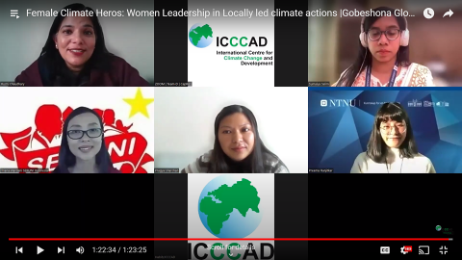
The fourth annual Gobeshona Global Conference focused on monitoring Locally-Led Adaptation (LLA) and resilience organized by the International Centre for Climate Change and Development was held virtually. This year, the seven-day-long conference aimed to link local, and international researchers, scholars, policy-makers, and practitioners to participate, support, and leverage the upstanding intentions and creativity of local communities aiming to develop and implement solutions dealing with climate change and monitor progress. The conference also aims to address the quality of research and take initiative to give research a real meaning so that publication becomes effective in response to climate impacts and LLA by encouraging constructive discussion and feedback among researchers. The virtual sessions included panels and open discussions focusing on adaptation strategies in local communities as well as research groups and practitioners from both developing and developed countries around the world. At the conference, in order to commemorate International Women’s Day, CANSA, ICCCAD (International Centre for Climate Change and Development), Prakriti Resource Centre and Independent University Bangladesh, organized a webinar on 6 March, titled: ‘Female Climate Heroes: Women Leadership in Locally Led Climate Actions’.
The speakers were Pragya Sherchan from Prakriti Resource Centre, Nepal, Sumaiya Binte Selim from ICCCAD, Bangladesh, Preema Ranjitkar, NTNU, Nepal, and Triana K. Wardani, SERUNI, Indonesia, and the session was moderated by Ruchi Chaudhary, Program Manager, CANSA.
Access the recording of the webinar here
Climate Finance Capacity Building Workshop, Kathmandu, Nepal | 12-14 March 2024

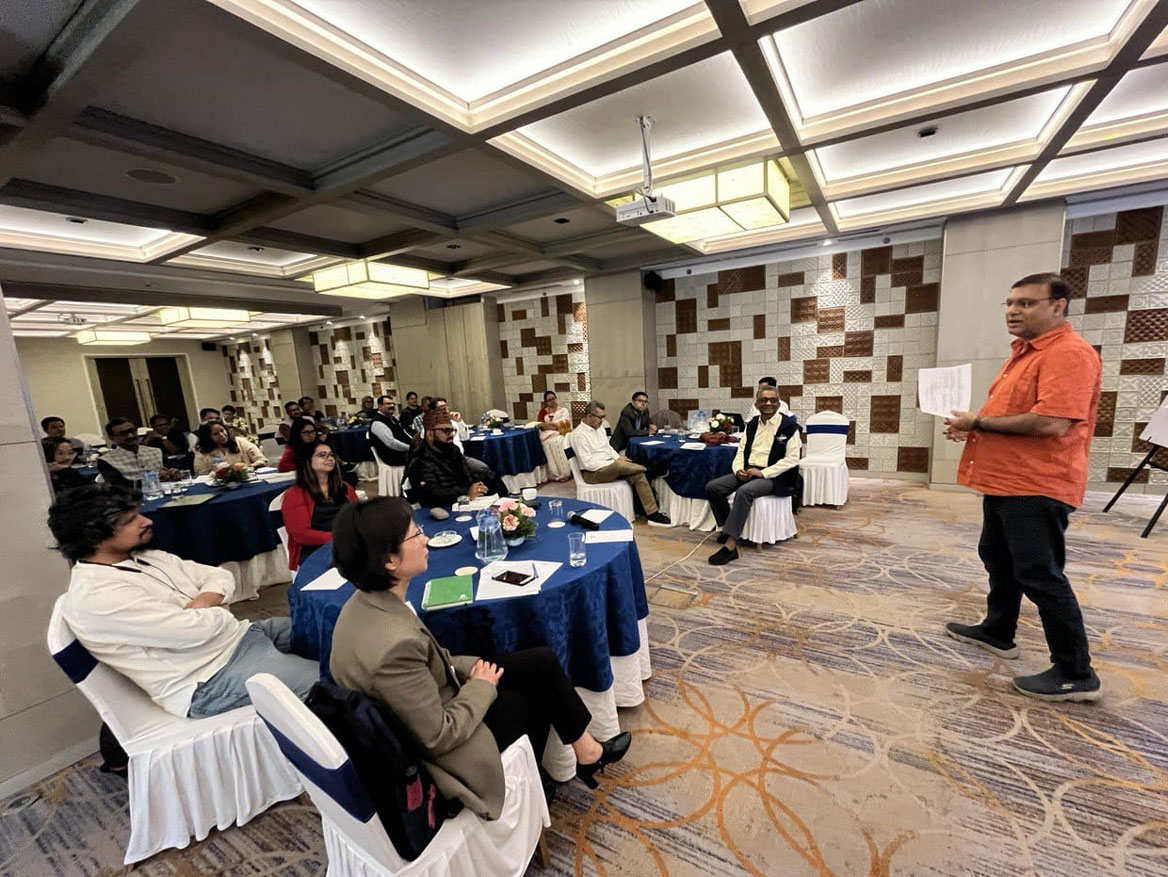
The Climate Finance Capacity Building Workshop had 30 participants from nine countries. Organised by CAN South Asia (CANSA) and CAN Southeast Asia (CANSEA) in partnership with Oxfam in Asia, the workshop was divided into three sections: The International Public Climate Finance Landscape; Climate Finance Landscape Beyond UN Negotiations and at the national level; Reflections and Priorities for the Global South in 2024 on Climate Finance.
Representatives of Climate Analytics in Nepal, Centre for Science and Environment in India, Yayasan Hivos in Indonesia, and Oxfam, among others including Iskander from CAN’s CFWG, presented their work to the audience. There was an introduction to financial instruments such as debt-for-nature swaps. A repository of all materials would be compiled to serve as a resource base. It was a productive meeting that took place in a spirit of partnership and collaboration.
For details, click here
Stakeholder Consultation: Building Urban Climate Resilience in Islamabad | 29 March 2024

Islamabad, the capital city of Pakistan, as well as the larger Islamabad metropolitan area, is a clear example of how climate induced impacts can cause ripple effects on all forms of ecological and economic activities if provisions to prevent, preserve, and enhance the ecological conditions are not adhered to by the municipal city level leadership.
The global climate crisis which includes extreme weather events, including heatwaves, floods, and erratic rainfall patterns, pose significant threats to the city’s infrastructure, economy, and the well-being of its residents. The clear skies of the city are no longer visible due to pollution, The extreme heat causes the springs, aquifers, rivers and dams to dry up, creating water scarcity. Furthermore, due to urbanization, deforestation has increased and the city now faces the urban heat island effect. Once considered as one of the most beautiful capitals in the world, Islamabad is bearing the brunt of human-induced climate change impacts, giving rise to socio-economic and ecological crises.
In this backdrop, Sustainable Development Policy Institute (SDPI) in collaboration with Climate Action Network South Asia (CANSA) conducted a stakeholder consultation on 29th March, to bring together key stakeholders and representatives from the local municipal authority and city leadership including government, policymakers, urban planners, environmental experts, community leaders, and relevant stakeholders, to discuss challenges and opportunities and a way forward for building urban climate resilience in Islamabad.
Drafting District Climate Resilience Plans (DCRP) for four districts in Bihar
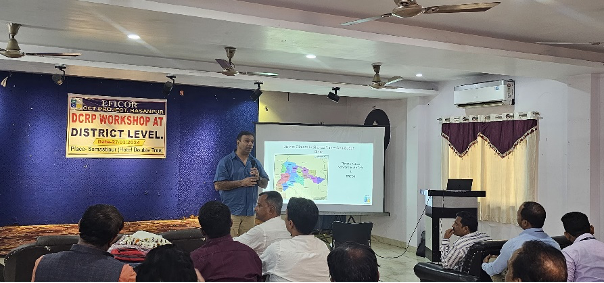
This quarter the EFICOR and CANSA joint project on drafting DCRPs for four districts of Bihar, namely Samastipur, Katihar, East Champaran and Madhubani, came to an end. DCRPs provide a roadmap for climate-proofing district development plans in India, to enable development measures to be analysed about the current and future challenges and opportunities presented by climate change.
CANSA conducted research, liasioned with the government, and drafted the planning document and will assist in its dissemination. CANSA will also be involved with advocacy of district resilience planning at national and international platforms.
For more details of the project, click here
NEW MEMBER
Indo Global Social Service Society (IGSSS), India

Wishing our new member from India a very warm welcome to the CANSA family!
BLOGS THIS QUARTER
CANSA IN THE NEWS
Islamabad needs urban climate resilient infrastructure to sustain livable status: Experts
Associated Press of Pakistan Digital | 29th March 2024
Desperate Thirst: Climate change and recurrent water crisis plaguing West Bengal’s Purulia district in India
Forbes India | 24th March 2024
MEMBER ACTIVITY IN SPOTLIGHT
Christian Aid and ICCCAD’s Evidence-Based Approach to Address
Non-Economic Loss and Damage (EBAAN)
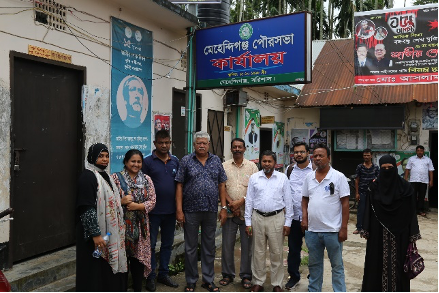

Christian Aid, in collaboration with the International Centre for Climate Change and Development (ICCCAD), launched the pioneering Evidence-Based Approach to Address Non-Economic Loss and Damage (EBAAN) initiative. This significantly contributes to ICCCAD’s non-economic loss and damage (NELD) priorities by generating evidence-based research on crucial areas for building resilience against climate change.
EBAAN focuses on critical aspects like biodiversity loss, mental health resilience, cultural heritage preservation, gender inclusion, and human mobility challenges arising from climate disruptions. By addressing these diverse areas, the initiative fosters holistic responses that encompass the impact of climate change on communities, ecosystems, and societies. Rigorous research through surveys, assessments, and data collection methodologies, the initiative aims to unearth nuanced insights into NELD dynamics. To get different geographical perspectives, this study is focusing on vulnerable areas from Southern, Northern and North-Eastern parts of Bangladesh, which enrich our understanding of localized climate change impacts.
EBAAN operates within ICCCAD’s NELD framework, ensuring synergy and coherence in tackling climate-induced NELD challenges. The initiative underscores the importance of collaboration, with Christian Aid and ICCCAD pooling expertise, resources, and networks to maximize impact and reach. Beyond research, EBAAN prioritizes advocacy and knowledge dissemination of research findings, which includes amplifying voices from the field and highlighting the lived experiences of vulnerable communities, to catalyze meaningful action at local, national, and global levels. Through evidence-based approaches, collaborative partnerships, and a steadfast commitment to addressing NELD, EBAAN strives to pave the way for a more resilient and equitable future for all.
EBAAN Knowledge Products:
Policy Brief:
Accounting for Non-Economic Loss & Damage changes perspective of L&D as a whole
https://www.icccad.net/publications/policy-brief/accounting-for-non-economic-loss-damage-changes-perspective-of-ld-as-a-whole/
Blog:
Climate Chronicles of the Manta Community: Life on the river, battling the water woes
https://www.icccad.net/blog/climate-chronicles-of-the-manta-community-life-on-the-river-battling-the-water-woes/
PUBLICATIONS IN SPOTLIGHT
CPRD Research Paper Published in IJMH
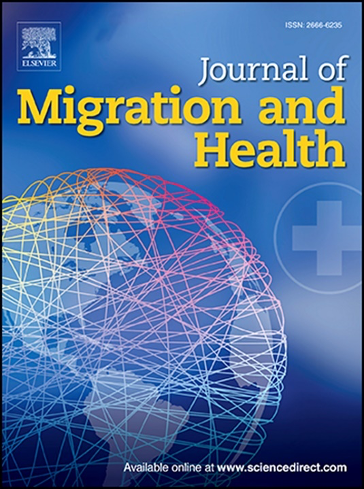
CPRD is happy to announce that its research paper titled “Impacts of Climate Change-induced Natural Hazards on Women and their Human Rights Implications: A Study in the Southwest Coast of Bangladesh” was published in the International Journal of Migration and Health, published by Elsevier.
The paper narrated differentiated vulnerabilities of coastal women to climate change-induced natural hazards, the challenges they face due to the chain impacts of climate change, and the resulting violation of their rights.
The study recommends that provisions for alternative livelihoods should be made for women, and all women must be brought under the umbrella of fair social safety net programs. The pdf version of the publication is accessible on the link: https://doi.org/10.1016/j.jmh.2024.100221
This was part of CPRD’s flagship project titled ‘Research and Advocacy to ensure Climate Justice for the LDC’s, Bangladesh in Particular, under the Paris Climate Agreement’ supported by the Bread for the World, Germany and Diakonia, Sweden.






